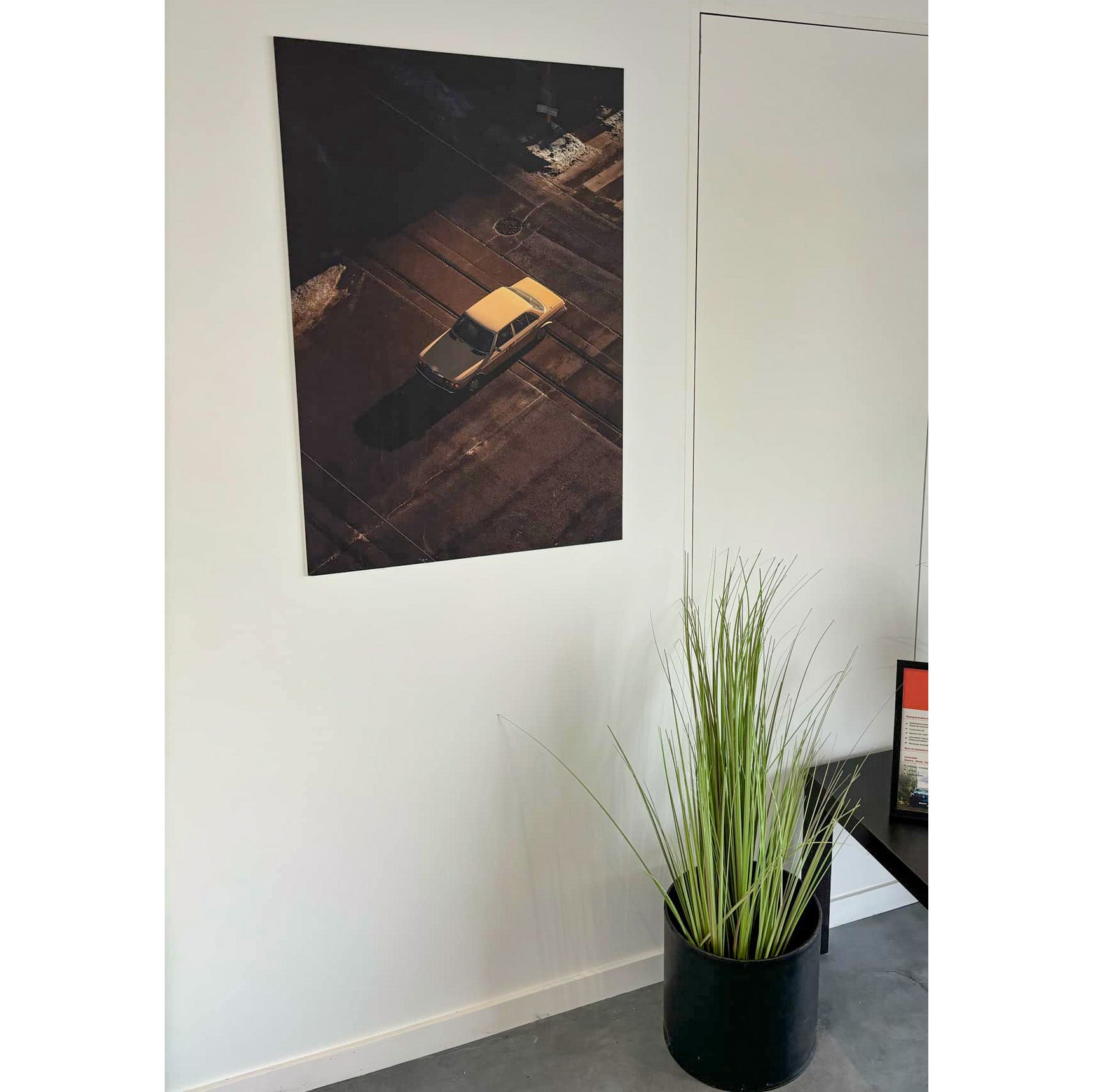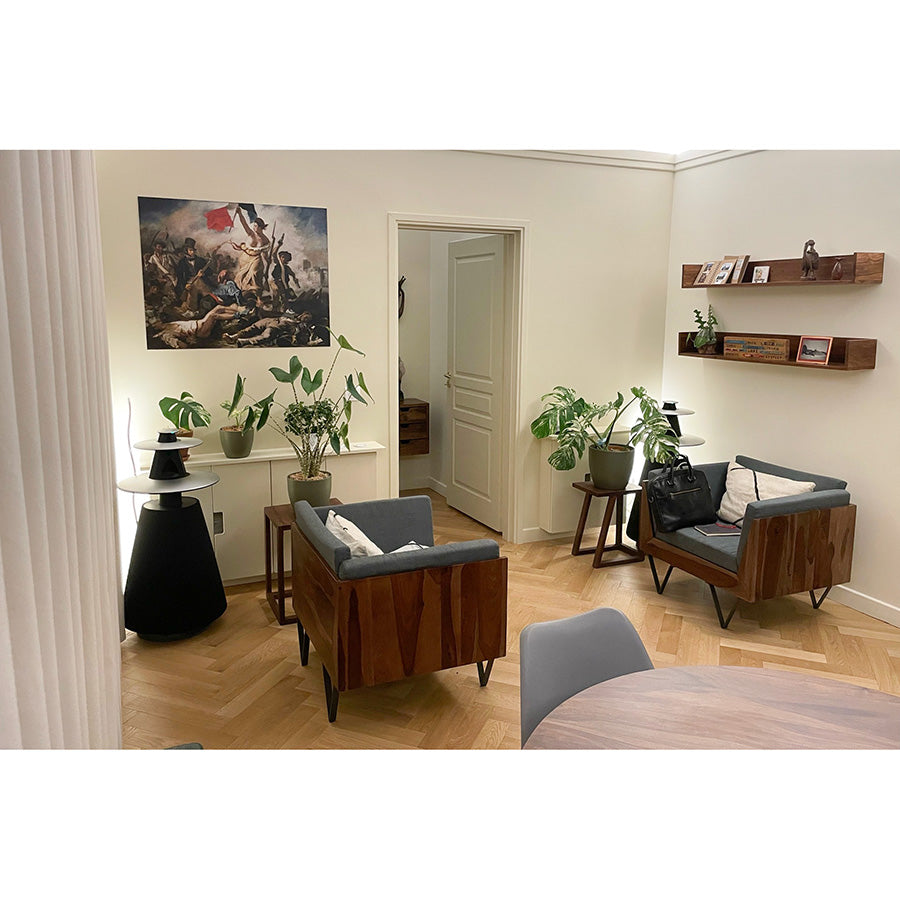Art print | Self-portrait with his sons Carlos and Vicente - Antonio María Esquivel


View from behind

Frame (optional)
Antonio María Esquivel's artwork "Self-portrait with his sons Carlos and Vicente" is a masterpiece that embodies both family intimacy and artistic expression. This 19th-century painting stands out for its ability to capture a moment of tenderness and complicity between a father and his children. Viewing this art print, the viewer is immediately transported into the artist's emotional universe, where the father-son relationship is highlighted with palpable sensitivity. Esquivel, as a distinguished portraitist, succeeds in transcending the simple act of painting to offer a reflection on the nature of fatherhood, while incorporating stylistic elements that reflect his era.
Style and uniqueness of the work
The piece is characterized by a masterful use of light and color, techniques dear to Esquivel. The contrast between the warm tones of the clothing and the cooler shades of the background creates a welcoming, almost intimate atmosphere. The faces of the protagonists, finely detailed, convey a range of emotions from joy to contemplation. This art print is not limited to a simple portrait; it is a visual narration, where each exchanged look between the father and his sons tells a unique story. The artist manages to establish an emotional connection with the viewer, making the work all the more captivating. The meticulous details, such as facial expressions and postures, reveal technical mastery that makes this piece a true ode to family relationships.
The artist and his influence
Antonio María Esquivel, an emblematic figure of the Spanish Romantic movement, knew how to mark his era with evocative portraits and his ability to incorporate narrative elements into his works. Trained at the Royal Academy of Fine Arts of San Fernando, he developed a style that combines realism and romanticism, influencing many contemporary and future artists. His passion for depicting everyday life and human relationships led him to explore universal themes such as love, family, and memory. Through "Self-portrait with his sons Carlos and Vicente," Esquivel does not

Matte finish

View from behind

Frame (optional)
Antonio María Esquivel's artwork "Self-portrait with his sons Carlos and Vicente" is a masterpiece that embodies both family intimacy and artistic expression. This 19th-century painting stands out for its ability to capture a moment of tenderness and complicity between a father and his children. Viewing this art print, the viewer is immediately transported into the artist's emotional universe, where the father-son relationship is highlighted with palpable sensitivity. Esquivel, as a distinguished portraitist, succeeds in transcending the simple act of painting to offer a reflection on the nature of fatherhood, while incorporating stylistic elements that reflect his era.
Style and uniqueness of the work
The piece is characterized by a masterful use of light and color, techniques dear to Esquivel. The contrast between the warm tones of the clothing and the cooler shades of the background creates a welcoming, almost intimate atmosphere. The faces of the protagonists, finely detailed, convey a range of emotions from joy to contemplation. This art print is not limited to a simple portrait; it is a visual narration, where each exchanged look between the father and his sons tells a unique story. The artist manages to establish an emotional connection with the viewer, making the work all the more captivating. The meticulous details, such as facial expressions and postures, reveal technical mastery that makes this piece a true ode to family relationships.
The artist and his influence
Antonio María Esquivel, an emblematic figure of the Spanish Romantic movement, knew how to mark his era with evocative portraits and his ability to incorporate narrative elements into his works. Trained at the Royal Academy of Fine Arts of San Fernando, he developed a style that combines realism and romanticism, influencing many contemporary and future artists. His passion for depicting everyday life and human relationships led him to explore universal themes such as love, family, and memory. Through "Self-portrait with his sons Carlos and Vicente," Esquivel does not









